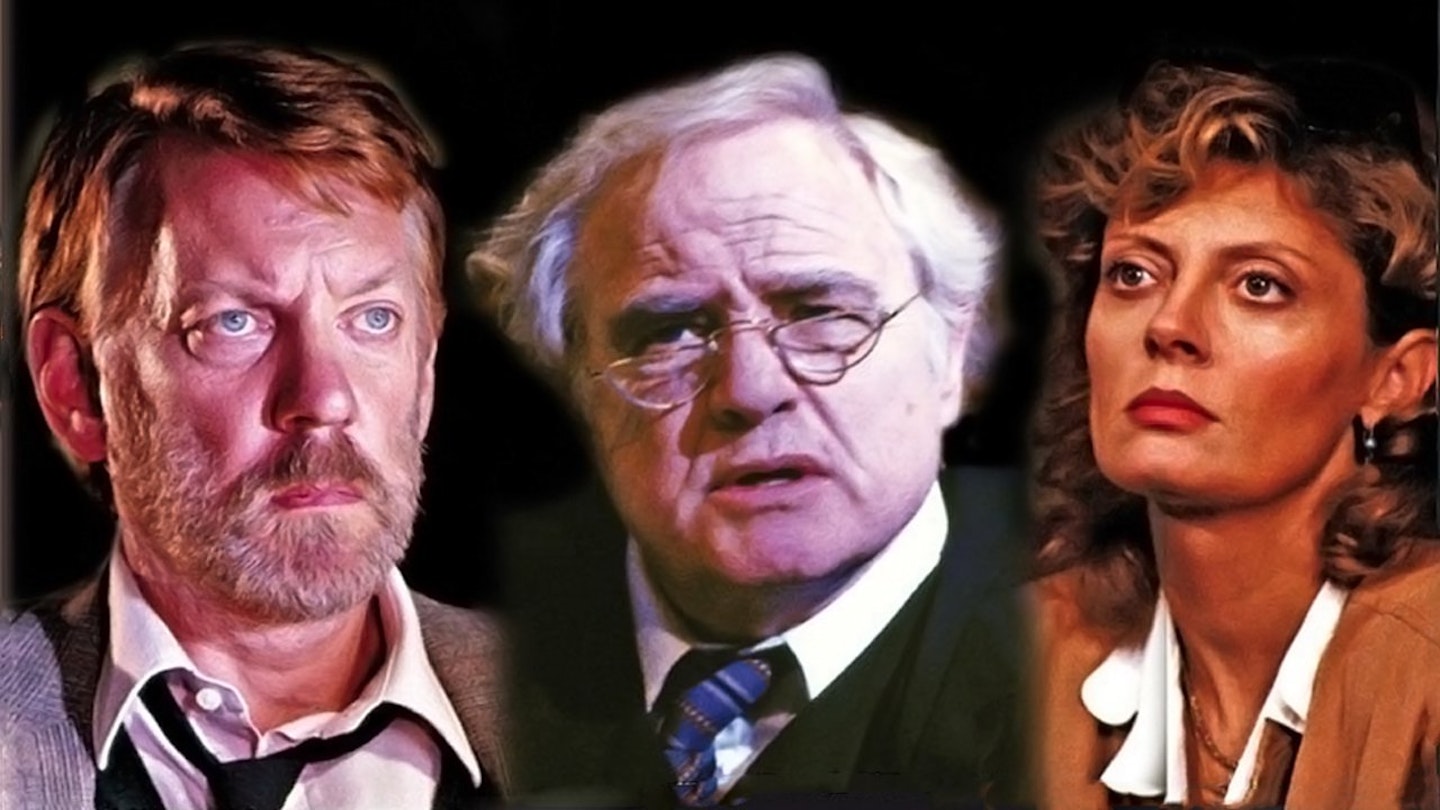Adapted from a novel by Andre Brink, A Dry White Season is a tale of two families, one black, one white, caught up in the tragic injustices of apartheid. The films drama springs from the naivete and subsequent political awakening of a white schoolteacher, Benjamin du Toit (Sutherland), who lives with his family in the tranquil suburbs of Johannesburg. The familys black gardener, Gordon Ngubene (Winston Ntshona), lives six miles away with his family in the black township of Soweto, though in terms of social and economic privilege it might as well be another planet. When Gordons son disappears during a schoolchildrens demonstration (which the police turn into a riot), du Toit expresses friendly concern, and soon learns the inadequacy of such a response.
Du Toits ignorance at this stage is, frankly, hard to credit. Could a schoolteacher, who reads the newspapers and employs a black person, really be so cocooned from South Africas inequalities? These doubts notwithstanding, Sutherland gives a convincing impersonation of a benign, virtuous and rather dull man who unwittingly begins his political education with a solicitous enquiry - hes genuinely baffled by the polices intransigence - and ends it in righteous defiance of a system he has discovered to be corrupt and unjust. On the way, he becomes estranged from his wife, his daughter and his colleagues, who simply cant understand why a white should involve himself in the trials of a black family. What this film will principally be remembered for, however, is the appearance of Marlon Brando, his first screen role - albeit only lasting about 15 minutes - in nine years. One could feel the ripple of anticipation through the theatre when he finally made his entrance as the maverick lawyer whom Sutherland consults about prosecuting the police. Age hasnt been kind to him; his girth has expanded alarmingly, and his looks went to seed long ago. But the charisma - theres no other word for it - is magnificently intact; he plays the courtroom scenes with an extraordinary lightness and grace. That brief performance eclipses everything else in this rather crude drama - so crude, in fact, that Brando has since disowned it publicly. Michael Gambon, Susan Sarandon, Janet Suzman and Zakes Mokae are locked into stereotypical roles which even their talents cant transcend, and the South African police are more or less what youd expect, kitted out with the standard issue cruel faces and ugly accents - the cinemas new Nazis.
The film is directed by Euzhan Palcy, a young woman from Martinique who made a highly regarded first feature called Sugar Cane Alley. Unfortunately, she hasnt been able to inject much vigour into this thumpingly didactic script, but she has crafted a watchable film, carried along with the same commitment that made A World Apart such a rouser. And Brandos return on its own more than justifies the price of admission.
